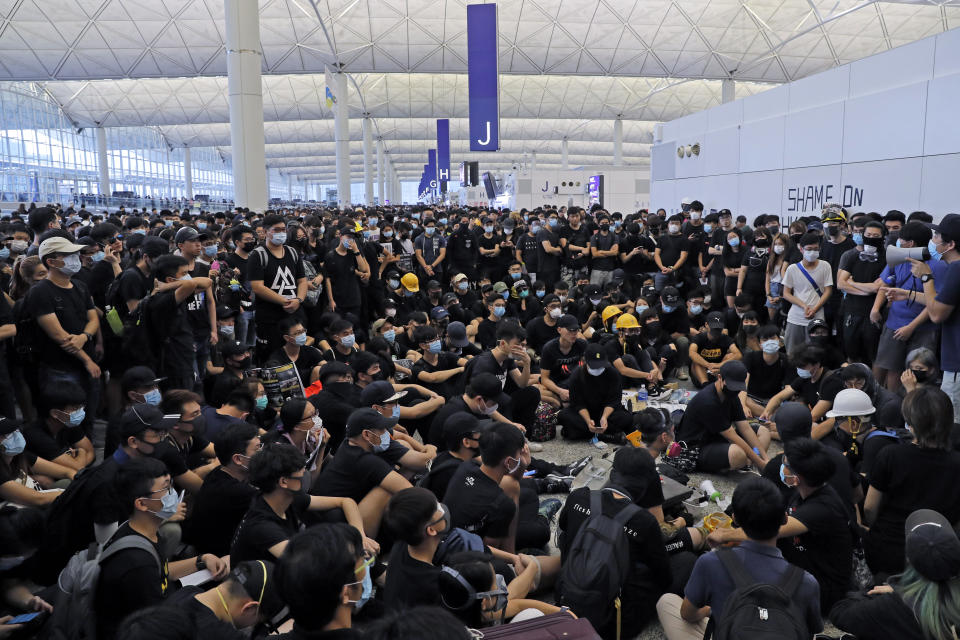It's a 'perfect storm for China right now': investment strategist
On Monday, anti-government demonstrators in Hong Kong moved their protests into the city’s international airport, leaving thousands of passengers stranded and investors spooked.
The S&P 500 (^GSPC), Dow (^DJI), and Nasdaq (^IXIC) all closed in the red on Monday following the news of the escalating protests, and the looming trade tensions between the U.S. and China.
Matt Miskin, market strategist of John Hancock Investment Management, told Yahoo Finance’s On the Move, that what we’re seeing unfold is “the perfect storm for China.”
“They've had foreign policy as an issue as it relates to tariffs and everything else. They've been trying to combat that. But now domestically, they've got some policy issues that they have to really worry about, and that flare-up is starting to show up in the macro data, it's starting to show up in risk markets,” said Miskin. “This is something that they're really struggling with, and it is something that people should be conscious of for risk management right now.”

China’s impact on the market
Miskin believes China’s impact on the overall market is often underestimated.
“It's 25% to 30% of just the market capitalization of emerging market equities,” he said. “Basically, China's the biggest component. Then you have the economic impact. It's the second largest economy. It's the number one contributor to global growth. When you add those two things up, basically emerging markets are primarily driven from China. And if China does slow, if China has these policy issues, then you see weakness in the currencies, you see weakness in the equities, and that can trickle into other asset classes and really affect it.”
Chelsea Lombardo is a production assistant for Yahoo Finance. You can find more of her work here.
Read the latest financial and business news from Yahoo Finance
Follow Yahoo Finance on Twitter, Facebook, Instagram, Flipboard, SmartNews, LinkedIn,YouTube, and reddit.


